Wondering if that custom development is worth it?
The truth is, companies that strategically evaluate their customization needs save an average of 37% on implementation costs and reduce system complexity by 45%.
In the world of enterprise software, customization can be both a blessing and a curse.
At Stockton10, we've seen countless businesses fall into the trap of over-customizing their NetSuite instance, ultimately creating more problems than solutions.
Time and again, we've worked with clients who invested heavily in customizations only to discover that standard functionality could have addressed their needs with far less complexity and long-term overhead.
The good news? There's a better way forward.
The Customization Quicksand: Where Good Intentions Sink
Customizing NetSuite might seem like the perfect solution to your unique business needs, but consider these risks:
1. Increased complexity
Each new customization adds another layer to your system's architecture, creating a tangled web that becomes increasingly difficult to manage. Your once-streamlined system turns into a complex maze of:
- Slower system performance.
- Challenging future upgrades.
- Higher risk of system errors.
- Dependencies that are difficult to document.
2. Maintenance burden
Custom solutions don't just work forever – they require constant attention and expertise to keep running smoothly. This ongoing commitment includes:
- Ongoing specialized support needs.
- Costly updates with each NetSuite release.
- Documentation that quickly becomes outdated.
3. Budget drain
What starts as a seemingly simple customization project can quickly transform into a significant financial commitment that extends far beyond initial estimates. The true costs include:
- Development costs ranging from $70-$130 per hour.
- Complex customizations consuming 40+ hours.
- Hidden costs when upgrades require customization rework.
5 Cases Where Customization Makes Sense
Smart customization focuses on your genuine competitive advantages:
- Core business differentiation: When the functionality directly supports what makes your business unique (like a manufacturer's proprietary production scheduling algorithm).
- Regulatory compliance: When your industry has specific requirements that standard NetSuite cannot address (such as specialized HIPAA tracking).
- High-volume efficiency: When customization significantly improves high-volume processes (like specialized batch processing for thousands of daily orders).
- Clear ROI: When you can demonstrate the customization reduces processing time by 75% for a core function.
- Strategic alignment: When the requirement supports your long-term business strategy.
5 Red Flags: When to Avoid Customization
Reconsider customizing when:
- Temporary needs: The requirement addresses a short-term business need (like reports for a one-time audit).
- Personal preferences: The request is based on preference rather than necessity (modifying screens to match an executive's aesthetic preferences).
- Limited user impact: The customization benefits very few users relative to its cost.
- Standard features exist: Your team hasn't fully explored NetSuite's capabilities (like requesting custom reporting when saved searches would work).
- Pre-built solutions available: SuiteApps or third-party solutions already solve your problem.
Industry-Specific Guidance
Before diving into customization within your specific industry, consider these tailored recommendations for avoiding common customization pitfalls in your sector.
E-commerce businesses
These businesses often struggle with balancing customer experience flexibility and system stability. Before customizing your storefront or order process:
- Common mistake: Excessive customization of customer experience and order management.
- Smarter approach: Leverage native SuiteCommerce capabilities and consider SuiteApps for specialized needs.
Manufacturing companies
Manufacturing processes often seem uniquely complex, tempting businesses to create elaborate custom solutions when simpler approaches would work better:
- Common mistake: Over-complicating manufacturing with custom workflow scripts.
- Smarter approach: Maximize standard Work Orders functionality and configure rather than customize Quality Management.
Professional services
Services organizations frequently underestimate NetSuite's robust capabilities for project-based businesses, leading to unnecessary custom development:
- Common mistake: Building complex custom project management systems.
- Smarter approach: Utilize NetSuite's project management tools and standard billing rules.
Real-World Success Stories
Don't just take our word for it. Here are two examples of how our strategic approach to customization has saved clients time, money, and headaches while delivering better business outcomes.
Case study: Streamlining tax management
In one of our case studies, a technology company needed to handle tax declarations across multiple states, but this created unnecessary complexity due to the use of multiple tax codes.
We simplified their approach using a single tax code for the territory and created reporting tools to track tax liability appropriately. This eliminated redundant customizations while still meeting all compliance requirements.
Case study: Automating lead-to-order process
A trading company was losing up to 30 minutes per customer on data entry and 1-3 hours weekly on contract processing.
Rather than building custom scripts, we integrated existing technologies (DocuSign, NetSuite Online Marketing Forms) with targeted customizations only where necessary.
The results? Eliminated manual data entry, automated contract processing, and a sales team freed to focus on revenue-generating activities instead of paperwork.
Future-Proofing Your NetSuite Investment
With NetSuite releasing two major updates annually, each customization potentially:
- Creates maintenance obligations with each update.
- May become redundant as NetSuite adds similar functionality.
- Could conflict with future enhancements.
To future-proof your investment:
- Stay informed: Track NetSuite's product roadmap to avoid customizing features that will soon be standard.
- Build with flexibility: When customization is necessary, design with change in mind.
- Regular audits: Review custom solutions annually to identify standardization opportunities.
The Stockton10 Approach: Configure First
Most businesses face a choice between two flawed approaches:
- Custom-build everything (expensive, complex).
- Use only standard features (limiting).
We offer a better third way: Strategic configuration with minimal customization.
Our process:
- Comprehensive assessment: Review your existing setup and identify standard features that might meet your needs.
- Optimization before customization: Leverage existing capabilities and configure before customizing.
- Tailored recommendations: Provide clear, actionable insights that minimize complexity.
The NetSuite Self-Assessment
Before requesting any customization, ask:
- Have we thoroughly researched NetSuite's standard capabilities?
- Can this be solved with configuration rather than customization?
- What is the expected lifespan of this business requirement?
- Have we calculated the total cost of ownership?
- Does a SuiteApp or third-party solution already exist?
Take the Next Step
Ready for a NetSuite that works for you, not against you? Our team will provide a no-obligation assessment of your NetSuite instance, helping you:
- Review your current system performance and customizations
- Identify optimization opportunities using standard functionality
- Provide a clear action plan with ROI estimates
Book your free 30-minute NetSuite Optimization Assessment today and discover which of your customizations are adding value and which might be causing unnecessary complexity.














